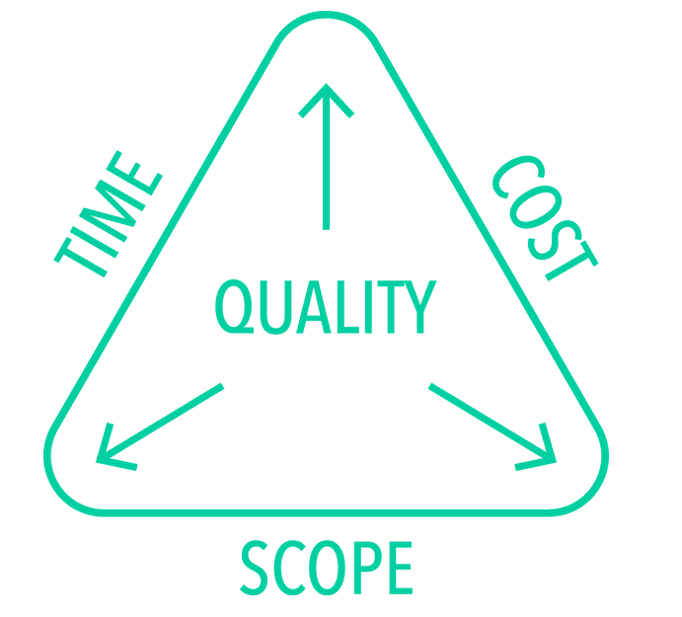What is project management?
According to the leading authority on project management, the Project Management Institute, project management is the application of knowledge, skills, tools, and techniques to project activities to meet project objectives.
What is legal project management?
Legal project management is the application of project management principles and practices to enhance the delivery of legal services.
Is there a project management certification?
Those who become certified in project management use the PMP (Project Management Professional) and LPM (Legal Project Management) credentials after their name.
In my opinion, this would be a valuable certification for a paralegal to acquire. Unlike a national paralegal certification that most attorneys are not familiar with (and that doesn’t transfer to other careers outside law), a project management certification would open up many potential career paths for paralegals.
That’s jumping ahead!
Let’s start with the basics.
As paralegals, you’re already working as project managers, even if it’s not in an official capacity. Every day you are applying your knowledge, skills, tools, and techniques to your projects to meet the project objectives.
You might not be practicing project management in a written, formal method the way most people think of project managers – but you are doing project management as a paralegal.

One key paralegal project management tip
If you only take one thing away from this article, know that true project managers look at every project through the lens of the triple constraints.
👉 Those are:
> TIME
> COST
> SCOPE
What is the Triple Constraint of project management?

TIME – a project should be completed and delivered on time. Activities of a project
COST – an estimate of the amount of money to complete the project. It is also the cost of the resources (people, equipment, tools, etc.) needed to complete the project.
SCOPE – requirements or expectations of the project. This is also called the deliverable.
QUALITY – refers to the quality of the product or deliverable. The quality of the deliverable is dependent on balancing the three project constraints.
The Triple Constraint states that the success (quality) of a project is impacted by its budget, deadlines and scope. In other words, if there is a change to one side of the triangle, you must adjust the other sides of the triangle.
As a manager of that project, you can trade between these three constraints; however, changing the constraints of one means that the other two will suffer to some extent if they don’t change along with the other constraints (or the quality of the deliverable will suffer).
How can we apply the triple constraints of project management to your paralegal projects?
Example for a Litigation Paralegal
You’re reviewing data and documents in your ediscovery project to determine what’s responsive and to remove privileged documents before producing the documents to opposing counsel. The deadline (time) is next week.

Tomorrow, the attorney comes to you with a hard drive that the client just gave him, or they uploaded more data to the FTP. That’s an increase in scope.
If there is an increase in scope, there will be an increase in cost and time, or the project will not have the same quality. In other words, mistakes happen. You don’t have enough time for a quality review, and the production goes out the door with some privileged documents that weren’t supposed to be produced.
👉 Read: Work Your Litigation Cases Like a Project Manager
Example for a Real Estate or Transactional Paralegal
Your closing is scheduled for November 1st. Three weeks before the scheduled closing, you get word from your attorney that one of the parties is going out of the country starting on October 27th. They want to bump up the closing date to October 24th.
A change in time means there will have to be a change in scope and cost. If not the quality of the product, then the service will suffer. Maybe there wasn’t enough time to do a thorough quality check, and you later discover one of the closing documents wasn’t signed by one of the many parties to the transaction.
Example for a Corporate Paralegal
The team consists of you, the partner, and two associates. Two weeks before this significant M&A transaction is scheduled to close, one of the associates comes down with the flu. Part of the scope included the due diligence project that the associate was doing. Your project now has a lack of the anticipated resources (cost side of the triangle), which means your time and scope sides of the triangle may need change.
What’s interesting with this example is that the cost is actually lowered by not having the associate working on that part of the project, so an easy way to adjust the triangle is to add back in that cost. In other words, find someone else who can do that portion of the project. Or, if you were to adjust the scope (skip the due diligence) and adjust the time (because you don’t have enough resources), then your triangle could recover.
Final Thoughts on Paralegal Project Management
The next time there is a change in the project scope, the deadline, or the budget, ask yourself if there is anything that can be done to adjust the other sides of the project triangle so that the quality of the project is not affected. In doing so, you are applying project management principles to your paralegal projects.
If you are a litigation paralegal who wants to incorporate project management principles into your e-discovery projects, you’ll want to read more about our E-discovery Paralegal Boot Camp.
Video Advice to a Paralegal
After writing this article, I answered one of our Q&A submissions from our followers on where to take their paralegal career, and project management came up as an option.
Watch the video below. ⬇️

























